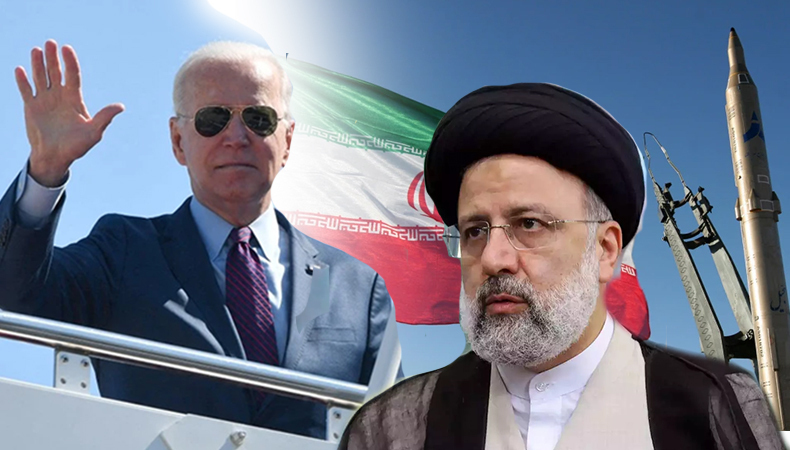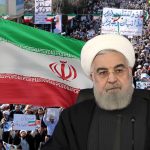Biden’s trip draws attention to the threat of a nuclear Iran


Biden promised to re-enter the 2015 nuclear agreement with Iran during his 2020 presidential campaign. His predecessor, Donald Trump, had left the agreement in 2018, claiming it did not go far enough.
But Biden was eager to resurrect the agreement that he had assisted in negotiating when he served as Barack Obama’s vice president, but he said that it needed to be updated to account for Iran’s nefarious operations in the region, which analysts claim have since multiplied.
An integrated air and missile defence system for the US and its allies, together with close engagement with regional allies like Saudi Arabia, according to policymakers, would go a long way towards developing a more thorough Iran policy.
Related Posts
Even before the nuclear issue came up, regional nations were aware of the threat Iran posed. Indeed, the regime’s efforts to develop ballistic missiles, use drones and ships, and support stooges in the region’s militias have caused mayhem.
Additionally, they think Iran’s hostility overseas is congruent with its domestic repression effort. A regime crackdown in reaction to large protests in November 2019 resulted in up to 1,500 deaths and thousands more prisoners.
However, it appears that Iran’s extraterritorial actions and domestic persecution have been eclipsed by talks taking place in Vienna and, more recently, Doha, aimed at resurrecting the nuclear deal, officially known as the Joint Comprehensive Plan of Action, or JCPOA. According to critics, European and US negotiators have instead concentrated on the one matter of Iran’s nuclear programme.
A senior scholar at the Foundation for Defense of Democracies, an independent think tank with headquarters in Washington, D.C., named Behnam Ben Taleblu, asserts that “one of the main problems with the JCPOA is not even its content, but the method by which it came about.”
When it comes to developing plans for Iran policy that are unrelated to nuclear issues, it has sucked all the oxygen out of the room, regardless of whether it was under the Obama administration that negotiated it, the Trump administration that left it, or the Biden administration that is trying to claw it back at all costs.
This is unfortunate, according to Ben Taleblu, “since the threat represented by the Islamic Republic’s foreign and security policy has always been much bigger than merely the nuclear issue.”
He continued, “All ultimately put their eggs in the deal-or-no-deal basket, and President Biden is no different,” despite the fact that some negotiators had attempted to square the circle.
In recent months, when the Biden administration vigorously imposed oil and petrochemical sanctions on the Iranian regime, Washington did appear to step up its pressure on Iran. At a meeting of the board of governors of the International Atomic Energy Agency in June, it also passed a resolution of censure against Iran with the assistance of European allies.
Even though Ben Taleblu believes that these actions may be too little, too late, they may indicate a major shift in the administration’s approach to Iran.
If I had to speculate as to the motivation behind Biden’s embrace of pressure at this point in the game, he might be trying to open the door for a discussion with his partners and allies in the region, such as Saudi Arabia, about what a more cohesive strategy might entail. He might also be hoping to give his allies a taste of this as things progress, “he said.










